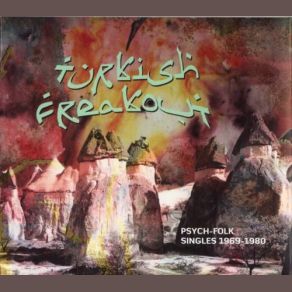Ersen
Wikimp3 information about the music of Ersen. On our website we have 9 albums and 7 collections of artist Ersen. You can find useful information and download songs of this artist. We also know that Ersen represents World Music genres.
Biography
[Edit]Numerous talents have played important roles — both big and small — in the development of the Turkish music history. However, when the style under consideration is Anadolu pop, no one was as revered, diverse, and long-lived as Ersen. Featuring Ersen's soft, intimate vocal style, his timeless early works are celebrated all around the world. Born as Ersen Dinleten on July 4, 1946, in a poor neighborhood in Istanbul, he became interested in music at an early age. His father (a hero according to Ersen) was interested in the violin, so Ersen learned to play his father's instrument — as well as mandolin and guitar — when he was child. Spending most of his time practicing, he also studied the art of singing and later found himself singing Turkish folk tunes at local meetings and wedding parties.
Playing and singing in many orchestras until the end of the '60s, Ersen's faith turned when he met Cem Karaca in person. A newborn star in Turkish rock scene, Karaca was managing Bunalimlar at the time and offered Ersen an opportunity to record. His first single, "Olvido — Ak Guvercin," was released in 1969 and featured hypnotic guitar work from Unol Buyukgonenc. A year later, Ersen replaced Aziz Azmet of Mogollar to lead the band. The collaboration was very short, as Mogollar headed to France, so Ersen joined forces with another Anadolu pop band, Uc Hurel. Ersen's early singles were mostly Spanish-influenced, but he later evolved into a unique blend of Turkish folk and Western progressive themes. His breakthrough single, "Kozan Dagi," was released in 1972. "Sor Kendine," released that same year, was an incredible show of talent, and it's still one of the pivotal points of his career.
He later joined Mogollar once again, played with Kardaslar, and at last formed his well-known band Dadaslar. Being a group of talented musicians of the present scene, Dadaslar could never maintain a stable line-up; however, they supplied the necessary background for one of the most important figures in the Anadolu pop/rock scene. Ersen released "Cakmagi Çak," "Yine Seni Taninm," "Bir Ayrilik Bir Yoksulluk Bir Olum," "Uc Kiz Bir Ana," "Ne Sevdigin Belli Ne Sevmedigin," and "Ekmek Parasi," among other singles, until the end of 1978. Following the tendency of the Turkish music market in the '80s Ersen laid aside his band and continued his career alone. Like the rest of his fellow Turkish musicians, he was also forced to choose a side in the political turmoil of the day. Despite trying not to reveal clear political beliefs, he was right wing-oriented, and after the Army took control of the government, he was disrespected by many musicians and fans. He played and recorded for the Army and the governmental media, TRT.
Hatamizi Bilmeden Cekiyoruz (1980) and Anadolu Pop (1983) were the last of his musically rich albums. Leaning toward a more poppy and shallow sound, Ersen faded away with his last album of the '90s, Ersen Ustadan Kuru Fasulye in 1993. After a nine-year hiatus, Ersen returned to the music business with Ersen Mevlana Gibi. The album, finding Ersen in a more mystical and spiritual form, failed to draw attention, just like the following year's Donemem. In 2007, Ersen ve Dadaslar re-recorded five of their classic tunes and released them as an album called Ersen ve Dadaslar Yeniden (1973-2007). A self-titled compilation appeared on Finders Keepers in 2008.
Title: Takma Kafana Arkadaş - EP / Takma Kafana Arkadas - EP
Artist: Ersen
Genre: World Music, Arabic Music
Title: Marmara'dan Ezgiler - 4
Artist: Mustafa Cihat, Alper, Ersen, Yeniçağ / Yenicag, Eşref Ziya / Esref Ziya
Genre: Gospel, World Music
Collections
Title: Istanbul 70 - Psych, Disco, Folk Classics
Genre: World Music
Title: Hava Narghile
Genre: Folk Rock, Psychedelic Rock, World Music
Title: Love, Peace & Poetry: Turkish
Genre: World Music, Psychedelic, Poetry
Title: Turkish Freakout: Psych Folk Singles 1969-80
Genre: Psychedelic
Title: Love, Peace & Poetry: Turkish Psychedelic Music
Genre: Psychedelic















